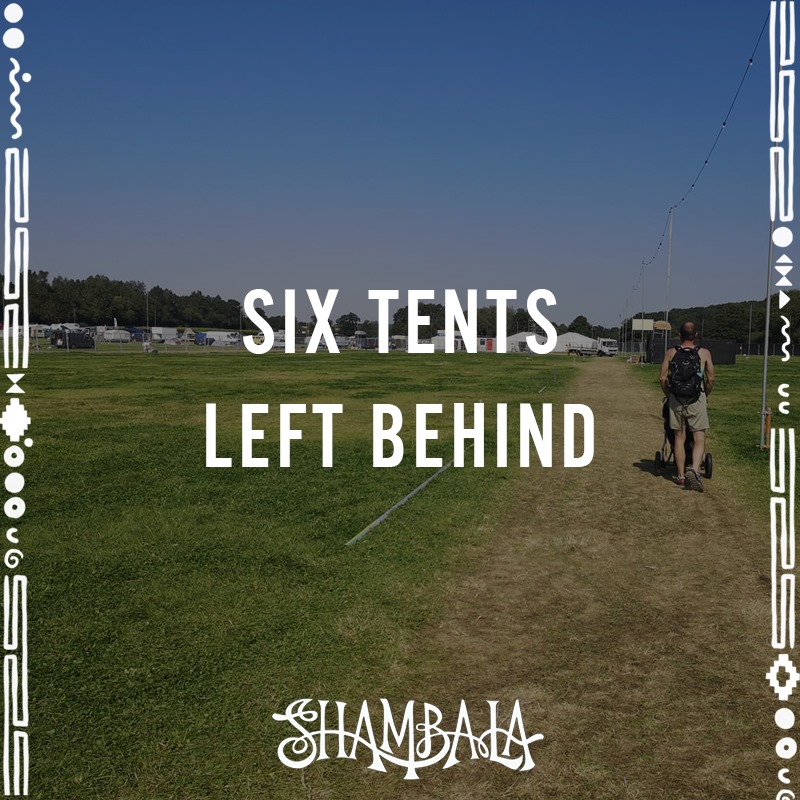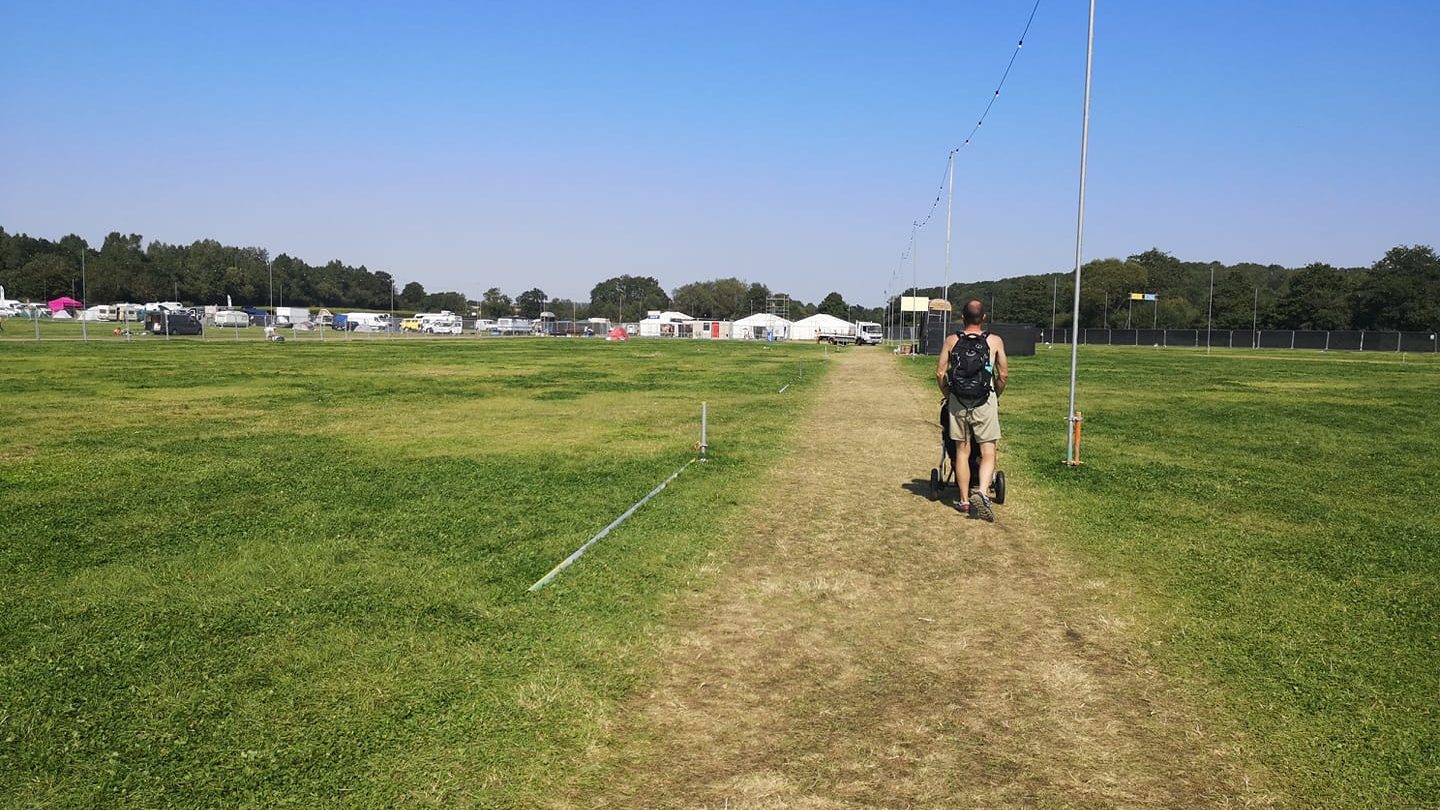Earlier this year, the Association of Independent Festivals (AIF) launched the ‘Take Your tent Home’ campaign to encourage festivalgoers to take their tents home.
Having seen the carnage that’s often left behind after festivals on many occasions, we were right behind it. Not least because the average tent weighs 3.5kg and is mostly made of plastic – the equivalent of 8,750 straws or 250 pint cups.
Now that the festival season is behind us, it’s great to see some success stories coming through. Our friends at Shambala are always leading the way when it comes to sustainability, and this year they surpassed all expectations on the tent front.
What is Shambala’s secret?
Just six tents were left behind at Shambala this year – along with approximately 100 broken tents neatly packed away and left in the campsite bin pens, by campers.

So how did they achieve such brilliant results? We spoke to Shambala’s Sustainable Projects Coordinator Henry Taylor who told us that it’s been a combination of making it very clear that it’s not ok to leave your tent behind, alongside the media drawing attention to the tent issue in the past year.
“A big reason why people left tents in the past was this idea that they were going somewhere to be used afterwards, for example to refugee camps. It’s important to have a human presence in the campsite. We have a group of well-briefed Oxfam volunteers working in the camping areas who let campers know that this isn’t the case, so that they know they won’t be reused if they are left behind,” Henry told us.
Shambala also has a policy against ‘tatting’, where people go around taking things from the campsite. Again, their volunteers let campers know that this isn’t allowed and that it is considered theft, which gives them even less of an excuse that someone else might take their tent if they leave it behind.
There’s also an element of self-regulation at Shambala, says Henry. “I noticed this year that when punters dropped waste, it was others who tell them to pick it up. It’s creating a culture of responsibility and raising the bar of what’s acceptable, which means that people have to be more conscientious.”
And, this even led to people naming and shaming their friends who left tents behind this year. Because there were only six tents left it puts you in the minority and becomes embarrassing if you are one of the few, rather than one of the many.
Is awareness growing?
So, have campaigns like ‘Take Your Tent Home’ made a difference? Henry says that he thinks they have. “When you’re leaving a festival and have a quick decision to make of whether to bother taking your tent with you, a reminder from a campaign can be the little thing that pushes people’s decision one way or the other.”
“We’ve also noticed that there were a lot fewer pop-up tents and single-use tents this year – we hope that when we get our campers’ feedback it will show that this is because people are more aware of the issue.”
And there’s been a definite culture shift in the wider industry this year. Glastonbury revealed that 99% of tents were taken home this year, and Boomtown reported a 70% reduction in campsite waste.
“Having just six tents left at Shambala is such a fantastic result and it sets a precedent,” says Henry. “I feel optimistic that this will start to happen across the board at festivals in general now.”




